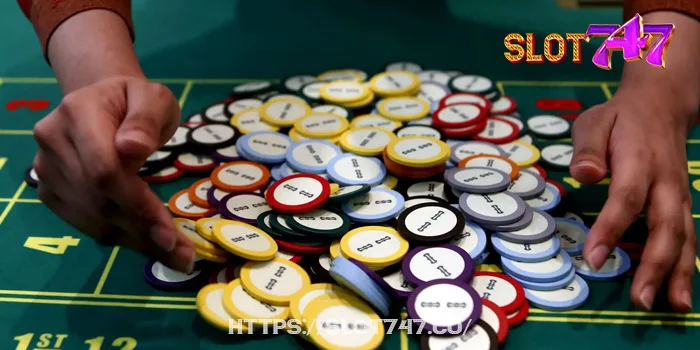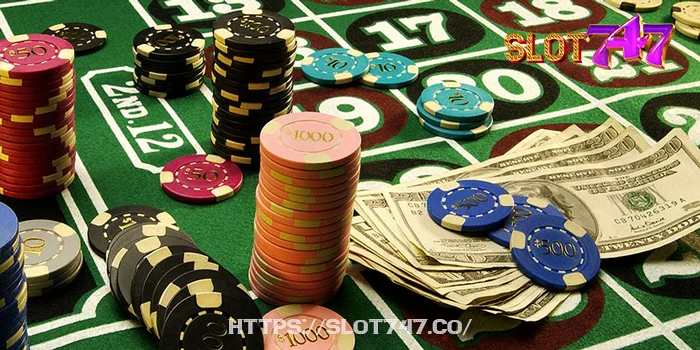The Evolution of Online Gambling in the Philippines: From Beginnings to Boom

Online gambling in the Philippines has undergone a remarkable transformation, shifting from traditional, physical betting avenues to an expansive, digitally powered industry. This evolution mirrors the country's technological growth and changing regulatory landscape. In this article, we’ll explore the entire history of online gambling in the Philippines, shedding light on how it all started, the rise of digital casinos, and what lies ahead for this ever-expanding sector.
Introduction: Tracing the History of Online Gambling in the Philippines

The Philippines has long embraced gambling as a cultural and recreational activity. From cockfighting arenas to bustling physical casinos, Filipinos have historically engaged in various betting activities. But in recent decades, the gambling landscape has shifted dramatically toward digital platforms. Understanding the Philippine gambling history is key to appreciating the modern boom in online gaming.
With the emergence of internet technology and the liberalization of gambling laws, the online casino growth in PH accelerated quickly. What began as a niche activity has now become a significant contributor to both local entertainment and the economy.
The Early Days of Gambling in the Philippines
A Snapshot of Traditional Gambling Practices
Long before the internet, gambling in the Philippines was already widespread. Locally known as “sugal,” activities like “sabong” (cockfighting), mahjong, and traditional card games were commonplace, particularly during fiestas and community gatherings.
Legalized gambling took off in the mid-20th century with lottery systems, sweepstakes, and land-based casinos. Many players gravitated toward games like baccarat, roulette, and slot machines in well-established casinos, especially in Manila.
PAGCOR’s Role in Regulating the Industry
To better regulate this fast-growing industry, the Philippine Amusement and Gaming Corporation (PAGCOR) was established in 1976. As a state-owned agency, PAGCOR was tasked with managing legal gambling activities and collecting revenues for government use.
Over time, PAGCOR would play an even more critical role in legitimizing digital casinos, paving the way for regulated online operations under its licensing umbrella.
The Dawn of Digital: Philippines Enters Online Gambling
Rise of Offshore Gaming Operators (POGOs)
In the early 2000s, the Philippines became one of the first countries in Asia to grant licenses to offshore gaming operators, more commonly known as POGOs. These entities offered gambling services online, but primarily catered to international players, especially in mainland China and Southeast Asia.
While POGOs generated substantial tax revenue and job opportunities, they also triggered regulatory challenges, especially related to security, taxes, and labor rights.
First Online Casinos in the Philippines
Parallel to POGOs, domestic-facing online casinos also began emerging. These platforms allowed Filipinos to play casino games such as slots, poker, and blackjack from the comfort of their homes. The convenience, accessibility, and attractive bonuses made online gambling a go-to entertainment option.
As internet penetration and smartphone adoption grew, so did the appetite for online casino growth in PH.
The Rise of Digital Casinos and Virtual Betting Platforms
Evolution of Game Variety and Player Access
Online casinos began offering thousands of slot variations, live dealer tables, and even virtual sports betting. Filipino players could now enjoy immersive, themed gaming experiences without visiting physical locations.
Developers continually pushed boundaries, introducing features like autoplay, advanced graphics, and multi-device compatibility.
Payment Systems and Crypto Integration
With the shift online came the need for secure, efficient payment systems. Online casinos in the Philippines now support:
- E-wallets (GCash, PayMaya)
- Online bank transfers
- Cryptocurrency payments
To understand this transition, check out Cryptocurrency Rise in the Philippines: What’s Driving It, which details the digital finance ecosystem fueling online gaming.
User Trust, Platform Safety, and Data Security
As digital platforms proliferated, ensuring data protection became critical. Licensed casinos implemented SSL encryption, multi-factor authentication, and fair gaming algorithms.
For more insight, explore Securing Player Data: The Latest in Online Gambling Safety, which breaks down the security standards reputable platforms now follow.
Major Milestones in the Online Casino Growth PH

Government Shifts and Policy Updates
Legislation has continually evolved to regulate online gambling:
- RA 9287: Increased penalties for illegal numbers games.
- POGO Taxes: Formal tax requirements on foreign operators.
- AMLA Amendments: To prevent money laundering via online platforms.
These efforts aim to balance player freedom with government oversight.
Technological Advancements
The introduction of RNG (Random Number Generator) technology and high-speed servers has enhanced the fairness and speed of games. Artificial Intelligence is now used in customer support and fraud detection.
You can read more about AI’s impact in AI-Driven Support: Transforming the Player Experience.
Challenges and Controversies in Philippine Online Gambling

Ethical and Regulatory Dilemmas
The fast expansion of online gambling has also raised ethical concerns. Underage access, addictive behaviors, and platform accountability are among the pressing issues.
Several NGOs and government bodies have proposed awareness campaigns and mandatory player protection tools like:
- Session time limits
- Deposit caps
- Self-exclusion programs
The POGO Debate
POGOs have sparked national conversations due to alleged ties to criminal activities and regulatory gaps. As of late, stricter enforcement has led to the shutdown of unlicensed operations, highlighting the government’s resolve to clean up the sector.
The Future of Online Gambling in the Philippines
Rise of VR, Blockchain, and Immersive Slots
Looking ahead, the future promises even more engaging formats:
- Virtual Reality Casinos: Immersive environments with 3D tables
- Blockchain Integration: Transparent, decentralized platforms
- Hyper-personalized Gameplay: Based on player behavior
The rise of digital casinos isn't slowing down — in fact, it's just getting started.
Cross-border Gaming and ASEAN Trends
The Philippines is now being viewed as a gaming hub in Southeast Asia. Regional partnerships and a supportive government stance position the country to lead innovation in both entertainment and regulation.
Conclusion: Reflecting on the History of Online Gambling in the Philippines
From cockfights to crypto casinos, the history of online gambling in the Philippines showcases a journey of innovation, regulation, and resilience. With a strong legal framework, technological advancement, and a gaming-savvy population, the country is poised to remain a key player in the global gambling space.
As the industry continues to grow, players are encouraged to stay informed, gamble responsibly, and choose platforms that prioritize security and transparency.
Copyright Notice : This article is an original work by The Evolution of Online Gambling in the Philippines: From Beginnings to Boom It follows the CC 4.0 BY-SA copyright agreement. For reprinting, please attach the original source link and this notice.Original article link : https://slots747.com/post/games/the-evolution-of-online-gambling-in-the-philippines-from-beginnings-to-boom
Frequently Asked Questions
Slot747 offers a wealth of information related to slot games, including detailed game reviews, gameplay strategies, updates on the latest slot promotions, and insights into the software platforms available.
By exploring our comprehensive guides, you can learn about game features, payout mechanics, and betting strategies to enhance your playing experience and increase your knowledge of slot gaming.
Absolutely! Our website is optimized for all devices, ensuring you can access game information, tips, and tutorials seamlessly, whether on a smartphone, tablet, or desktop.












